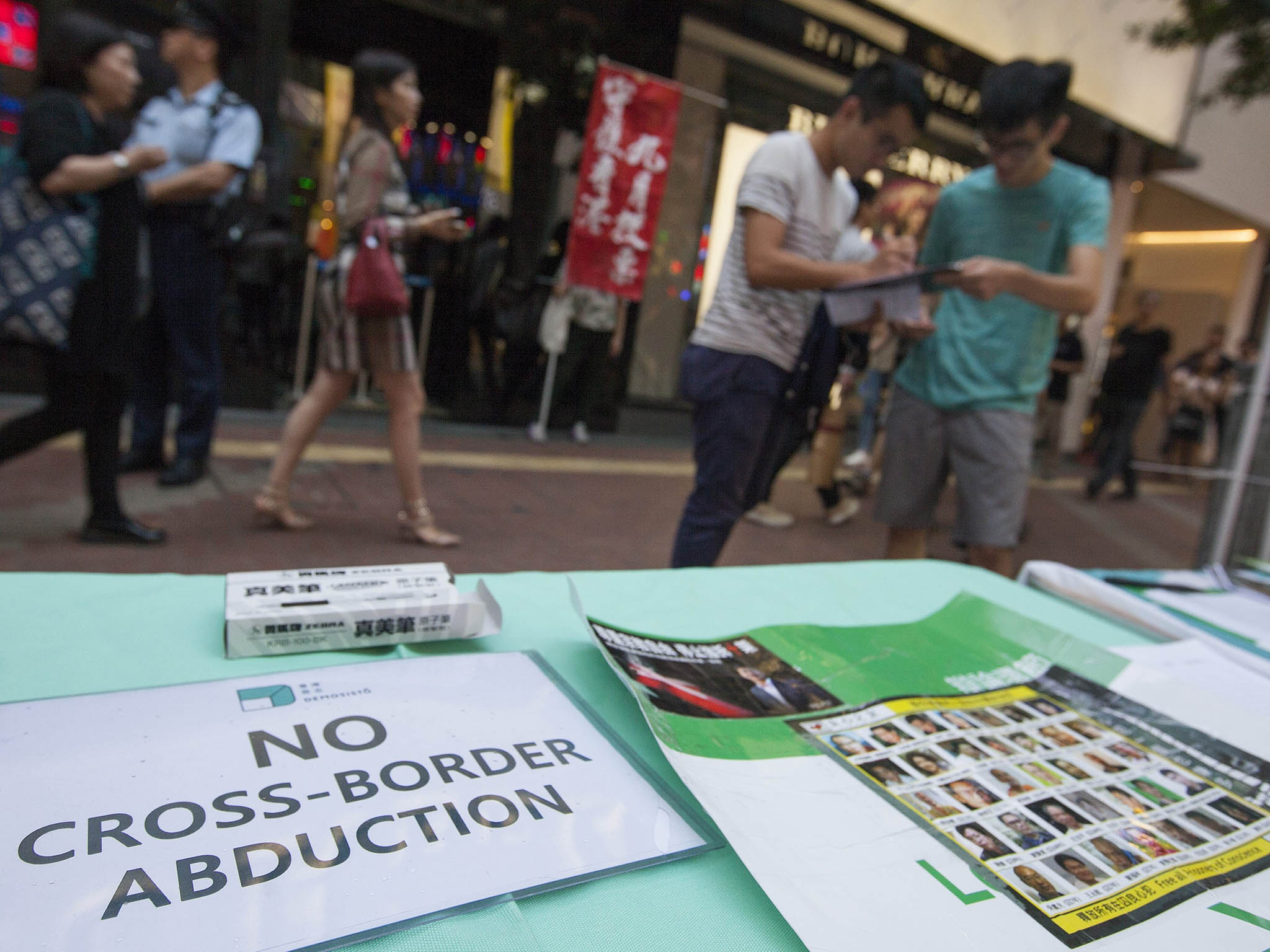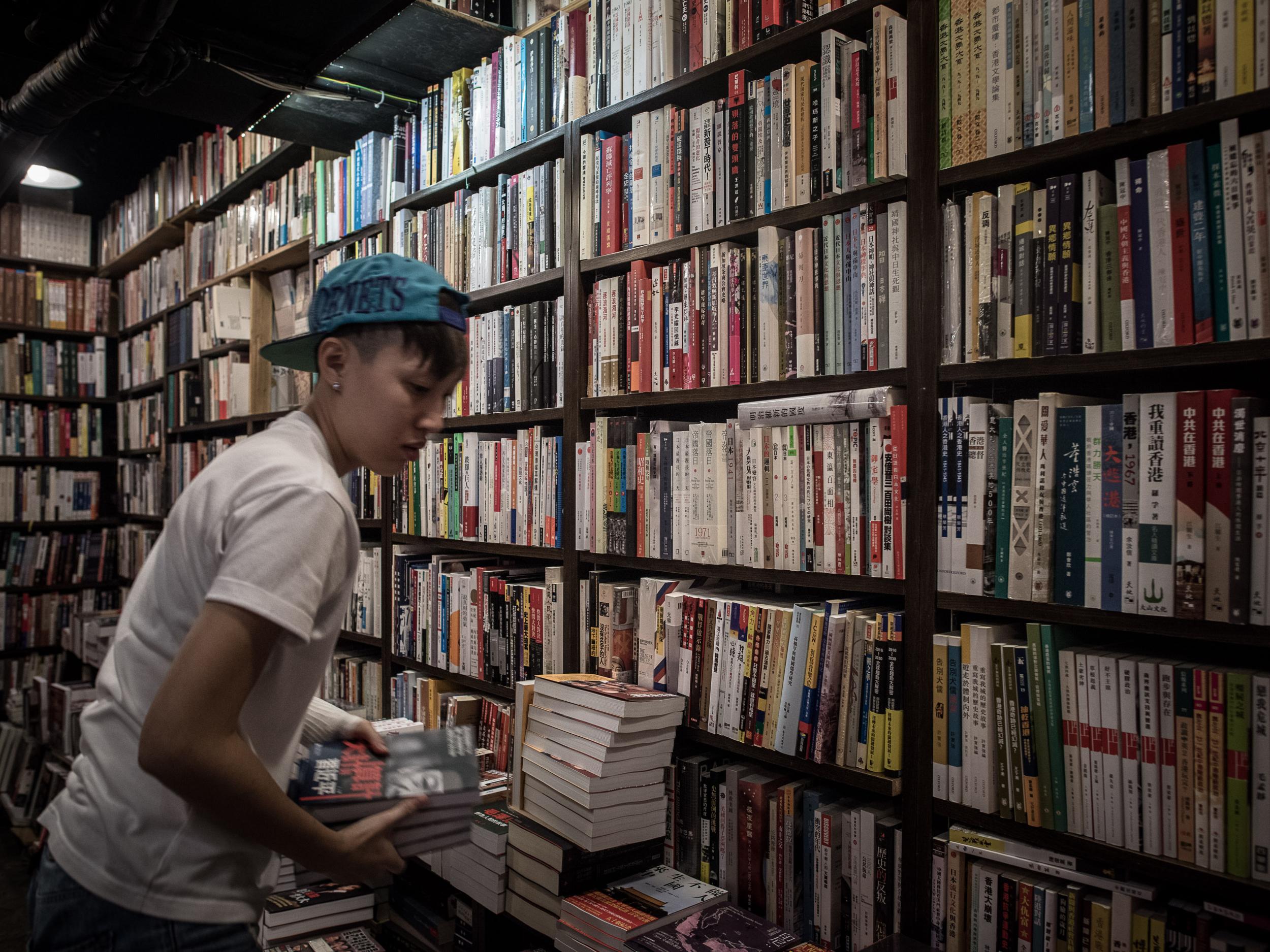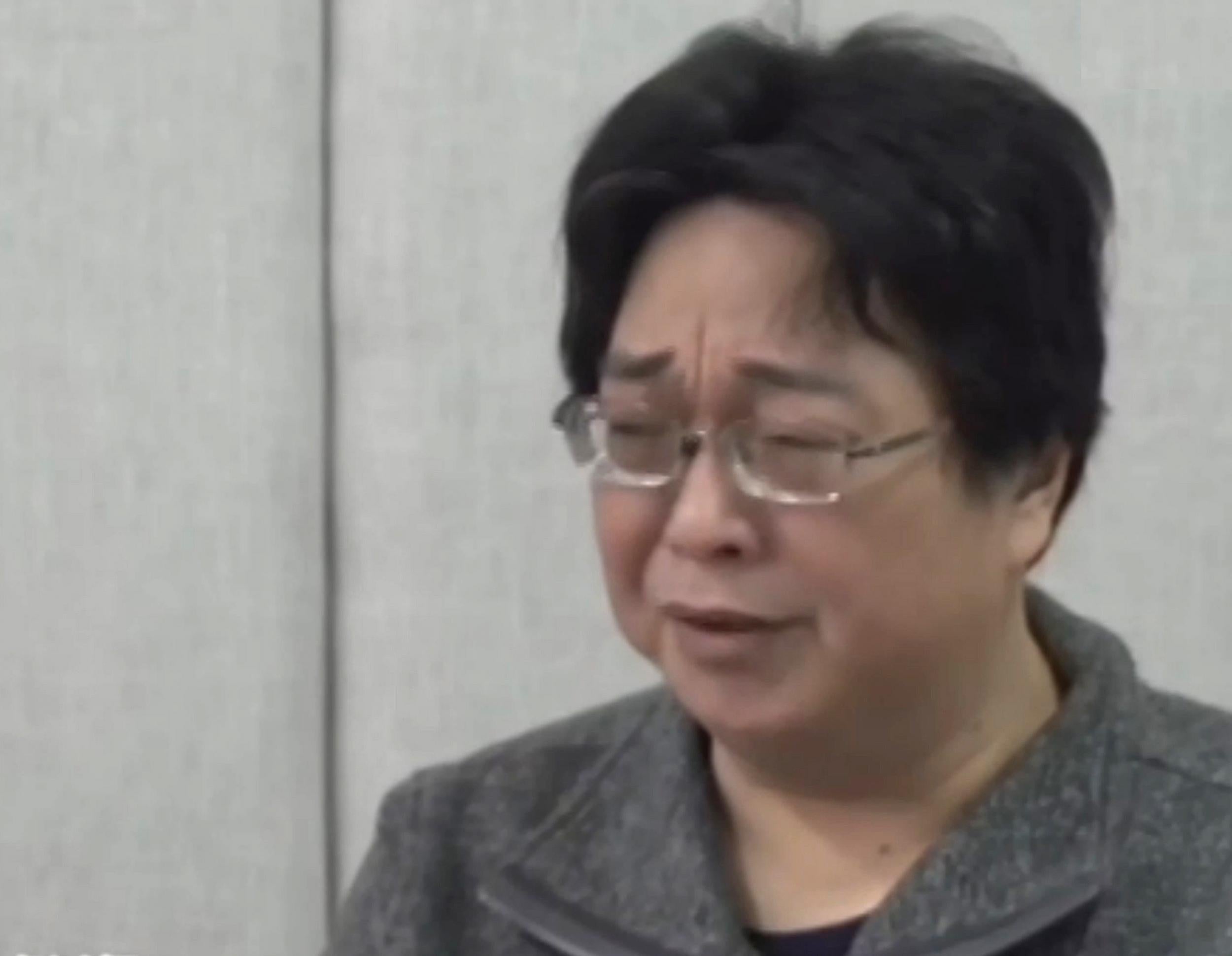Hong Kong presses Beijing over missing booksellers
Leung Chun-ying’s letter asks if China has violated the 'one country, two systems' rule

Hong Kong’s chief executive has sent a letter to Beijing asking if it has violated the “one country, two systems” plan over the case of the five booksellers who had disappeared, after one claimed he had been blindfolded and interrogated by Chinese officials.
The two systems law guarantees the freedoms and rights of Hong Kong people.
Leung Chun-ying’s letter reportedly asked Beijing to clarify how relevant mainland departments handled cases where Hong Kong citizens have broken mainland laws and whether mainlander people had carried out cross-border law enforcement in the semi-autonomous city, according to Asia One.
“Did the handling of the incident hinder the ‘one country, two systems’ principle and the Basic Law protecting Hong Kong residents’ freedom and rights, especially the free of expression, publication and personal safety?”, said Mr Chun-ying.
Lam Wing-Kee, 61, is one of the five book sellers who went missing from the publishing house, Mighty Current, and bookstore Causeway Bay Books.
Both specialise in selling gossipy political books – which are legal in Hong Kong – on China’s ruling Communist Party leaders. Mr Lam, who was released on Thursday, led thousands of marchers in Hong Kong to protest the detention of the five men on Saturday.
Hong Kong protesters chanted “protect freedom of the press, freedom of publishing and freedom of speech” as they marched from the Causeway Bay Books shop to the Liaison Office.

He said he had been held in captivity for eight months by Chinese officials, where he says he was blindfolded and interrogated and had considered suicide many times.
He said he had been accused of trying to overthrow the Chinese government.
Following the release of thee other colleagues in March, Mr Lam was transferred from solitary confinement to a room that allowed more freedom.

In January, Gui Minha, a Swedish passport holder and one of the five booksellers who went missing, made a “confession” on Chinese TV saying he handed himself over to Chinese authorities for a drink driving offence in 2004. He is still believed to be in custody and protesters also demanded his release.
The other men reported missing were Lee Bo, the general manager of Mighty Current, last seen in mainland China in October, Cheung Jiping, 32, the publishing house’s business manager and Lam Wingkei, 60, the manager of the book store, who was last seen in Hong Kong in October.
Hong Kong's freedoms are protected by the Basic Law, a mini-constitution that includes the “inviolable” freedom of Hong Kong people from arbitrary arrest and search.
A number of Western governments, including Britain's, voiced concerns this year that Chinese-born British national Lee Bo, who went missing from Hong Kong in late December, had been abducted.
Join our commenting forum
Join thought-provoking conversations, follow other Independent readers and see their replies
Comments